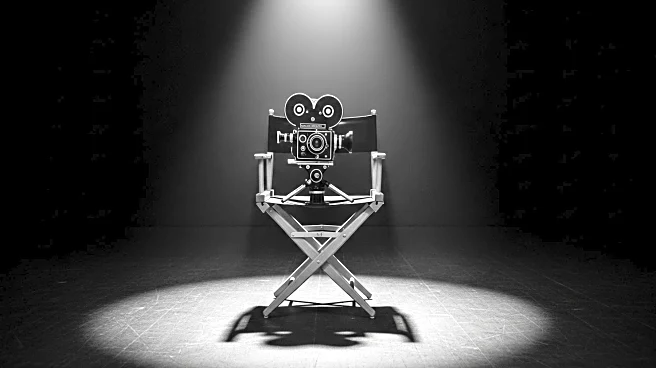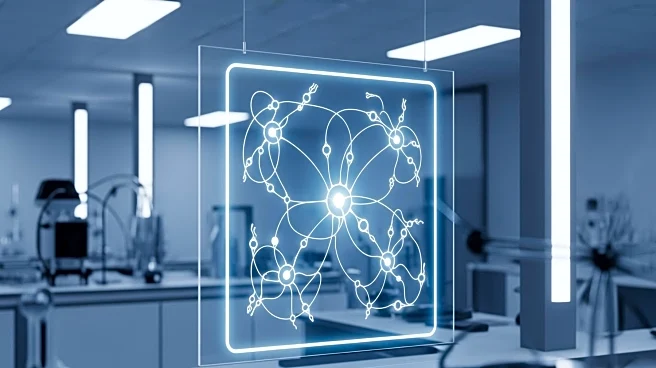What's Happening?
Guillermo Del Toro's long-awaited adaptation of Mary Shelley's 'Frankenstein' premiered at the Venice Film Festival. The film, starring Oscar Isaac as Victor Frankenstein and Jacob Elordi as the Creature, is a modern take on the classic novel. Del Toro, known for his love of monsters, brings a unique perspective to the story, exploring themes of humanity and creation. The film is set in the 19th century and features a dramatic opening sequence in the Arctic. Del Toro's adaptation is noted for its emotional depth and stunning visuals, with Alexandre Desplat's score and Dan Lausten's cinematography enhancing the Gothic atmosphere.
Why It's Important?
Del Toro's 'Frankenstein' offers a fresh interpretation of a classic tale, highlighting the director's ability to blend horror with profound themes. The film's exploration of creation and humanity resonates in the modern era, drawing parallels to contemporary issues such as artificial intelligence. Del Toro's approach to filmmaking, emphasizing traditional techniques over CGI, showcases a commitment to craftsmanship that may influence future productions. The film's release on Netflix expands its accessibility, potentially reaching a wide audience and sparking discussions on the ethical implications of creation.
What's Next?
Following its theatrical release on October 17, 2025, 'Frankenstein' will be available for streaming on Netflix starting November 7. The film's reception at the Venice Film Festival could impact its success and influence Del Toro's future projects. If the film performs well, there may be interest in a sequel, possibly exploring 'Bride of Frankenstein'. The film's themes may also inspire further discourse on the role of technology and creation in society, potentially influencing public policy and cultural narratives.
Beyond the Headlines
Del Toro's 'Frankenstein' delves into the ethical and philosophical questions surrounding creation, prompting viewers to consider the responsibilities of creators. The film's portrayal of the Creature as a complex character challenges traditional notions of monstrosity, encouraging audiences to reflect on the nature of humanity. This adaptation may contribute to ongoing debates about the impact of technology and artificial intelligence, highlighting the need for thoughtful consideration of innovation's consequences.









